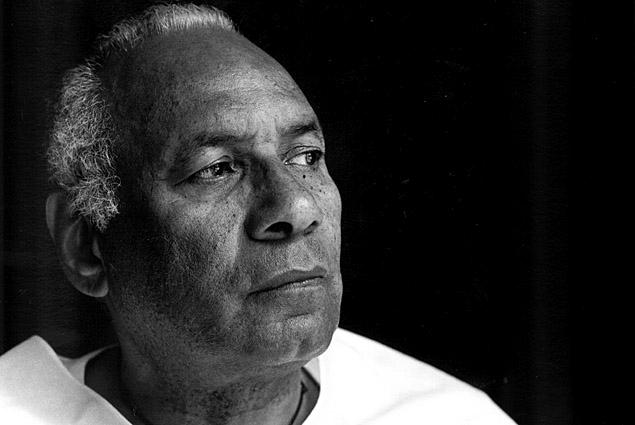Living in a dichotomous world where color was chosen over culture, Piri Thomas an Afro-Cuban-Puerto Rican man busted open a literary door for future Latino writers to successfully walk through. For so many U.S. Latinos who grow up “in-between” instead of “either or,” Piri Thomas was a landmark.
“Down These Mean Streets” was his seminal memoir. Released in 1967, the autobiography documented his rough and tumble life, the poverty and racism of Spanish Harlem. Thomas’ work was the first evidence of the U.S. Latino experience — it demonstrated that Latinos wrote books, told stories, created art and did it in English instead of Spanish. Since then, his debut the novel has been in continuous print and become a standard for high school and college literature class reading lists.
A son of New York’s East Harlem streets, in 1928 Juan Pedro Tomas was born to a Puerto Rican mother and a black Cuban father at Metropolitan Hospital. Piri, as his mother called him, was the oldest of seven children who grew up during the depression and felt first-hand the dual impact of racism and poverty in his urban environment. Being a dark-skinned Puerto Rican affected his relationships with family and the world around him. He suffered in a city that dictated color over culture and his blackness over his Latinoness above all else.
With the mean streets calling him, Thomas played the role of street thug, petty thief and drug user. Constant clashes with family, his neighborhood and his lifestyle prompted Thomas to leave home at just 15 years old. He joined the Merchant Marines at 16 and traveled through the South before returning to El Barrio and his old ways, at 20. A robbery shoot out, which wounded a police officer, landed him in Sing-Sing prison for seven years of hard labor. Incarceration would be his saving grace. While in jail, Thomas received his GED and found his true calling as a writer and poet – or has he called it “the flow.” By the time his sentence was complete and he was released in 1956, Thomas had completed the manuscript of his iconic tale.
Struggling to make ends meet and raising a family with his first wife, Thomas eventually became a rehabilitation counselor working with addicts and felons. His work caught the attention of an editor at Knopf Books and the stars aligned for his story to reach a larger audience. On his website, Thomas wrote, “Writing ‘Down These Mean Streets’ was a soul searing experience for me, in which I forced myself to go back into time to see the sees, do the dos, hear the hears, and feel the feelings over and over and over again… [The book] exploded out of my guts in an outpouring of long suppressed hurts and angers that had boiled over into an ice cold rage.”
Thomas spent much of his career creating art. His body of work includes two novels, “Savior, Savior, Hold My Hand” and “Seven Long Times” (1974), a short story collection, “Stories from El Barrio” (1980), a PBS documentary about his life “Every Child Is Born a Poet,” and numerous poems, essays and plays. Thomas even recorded two CD’s of his “word-songs” in “Sounds of the Streets” (1994), and “No Mo’ Barrio Blues” (1996). Aside from creating, Piri also spent much of his career spreading his own gospel of poetry and positivity. He gave readings at colleges and prisons and provided writing workshops to students and inmates alike. He keenly understood the purpose and difference words and their use had. “As a writer, I am concerned with words, names…since names can be positive or negative, bullets or butterflies.”
He will always be revered for sparking the Nuyorican literary movement in New York City. His bilingual style, bicultural world and honest portrayal of all he saw inspired generations to pick up pens and tells their own stories. “Because he became a writer, many of us became writers,” said Puerto Rican poet, Martin Espada in a recent New York Times article. “Before ‘Down These Mean Streets,’ we could not find a book by a Puerto Rican writer in the English language about the experience of that community, in that voice, with that tone and subject matter.”
In November of 2011 Thomas succumbed to complications from pneumonia at 83 years old. His life, words and stories gave affirmation that those who live in between, instead of on just one side of that dichotomy, had voices that mattered and were to be shared. For confirming this validity and leaving an indelible mark on the literary and Latino communities, Piri Thomas will always be a Don. Punto.

